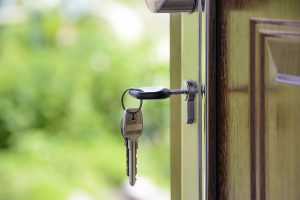
Pixabay user Photo-Mix
Owning your own home is part of the American dream, but how can you even think about realizing this dream when more than half your salary goes towards paying off your student loan for several years after your graduation? More and more borrowers are putting a hold on their dreams while struggling to stay out of debt.
Is this the norm then and should you forget all about buying a house or is there any way you can save for a house while paying off your debt? Experts suggest that putting all major life decisions on hold until after your debt is paid off is not a smart way to go about this.
There is a way that you can do both—save for a house while also paying off your student loan debt. It will require enormous self-discipline to maintain a frugal lifestyle and resist the temptation to splurge on luxuries, but it can be done. The key lies in creating a personalized savings plan that will work for you and that you can commit to.
Where to Start
The first thing you need to do is calculate your total earnings from all sources your primary job, your side job if you have one, and your freelancing income if that applies to you.
From your total income, deduct the amount you need to pay towards your house rent, utility bills, groceries, transportation costs, and other expenditures. The money you have remaining is your discretionary income. This is the money you will have to split between your payments and saving for your home.
As long as you are still in debt, your priority should be to keep aside as much money as you can every month towards paying back your loan and reducing your debt. The faster you pay back the loan the lower the accrued interest will be, lowering your overall debt. This should be your main goal.
Year 1
With that in mind, your personalized savings plan for the first year should be to put about 90% of your discretionary income towards your monthly loan payment and keep aside only 10% or less towards your ‘house-saving’ account. This should help you pay off a substantial portion of your loan.

Year 2
During the 2nd year, you can decrease the monthly loan payments marginally—say 80% or 75% – and keep a slightly larger percentage of your discretionary income—about 20% or 25% towards saving for your house.
Year 3
Depending on your financial situation during the 3rd year, you can decrease the monthly loan payments even more and allot a higher amount towards your home down payment.
Continue doing this till you have paid off your debt and save 100% of your discretionary income for a house.
Remember, the exact percentages you choose will depend on the amount of debt you have to pay off and how quickly you want to own your own home. Spending some time on creating a personalized savings plan will help you realize your dreams of owning your very own home. Every little bit counts and every dollar you add into your ‘house-saving’ account will help it to grow to a substantial amount slowly and steadily.
Use College Raptor to discover personalized college matches, cost estimates, acceptance odds, and potential financial aid for schools around the US—for FREE!





